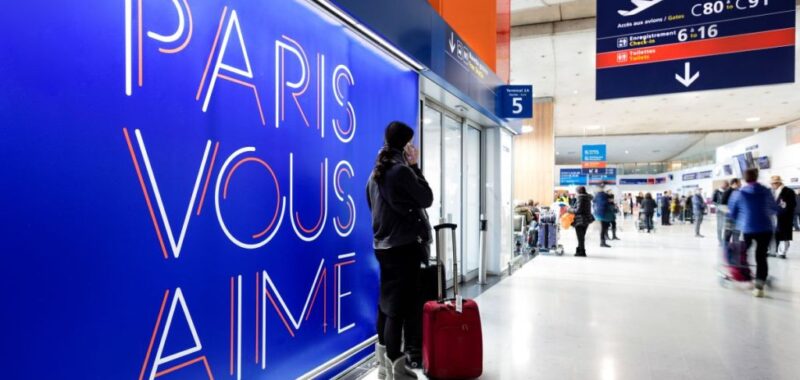Flights across Europe are being hit by a major air traffic control (ATC) strike. Tens of thousands of passengers are affected by two days of industrial action in France. The stoppage started on Thursday and will continue tomorrow, July 4.
As well as departures and arrivals at French airports, the strike is also impacting some flights that usually fly through French airspace. The disruption coincides with the start of the European summer holidays â one of the busiest travel periods of the year.
As of 3 p.m. CET (9 a.m. ET) on July 3, 463 scheduled flights into French airports were canceled due to the strikes. This is around 22% of all scheduled arrivals. A further 455 scheduled departures have been canceled so far from French airports, according to aviation analytics firm Cirium.
Many major carriers proactively canceled flights at the request of Franceâs civil aviation authority.
An “Intolerable” Strike
Airlines for Europe (A4E), a trade body that includes Air France, British Airways, and Lufthansa among its members, expressed frustration at the situation.
âThis strike is intolerable. French ATC already delivers some of Europeâs worst delay figures and now it will needlessly disrupt the holiday plans of thousands of people in France and across Europe. There is intense discussion about passenger rights in the EU right now, yet policymakers have done little to fix ATC to help them attain the most basic right: reaching your destination on time,â a spokesperson for A4E told Skift.
Ryanair is among the worst-hit airlines. It has already canceled hundreds of flights, which it says will disrupt the travel plans of more than 30,000 passengers on Thursday alone.
Michael OâLeary, Ryanair Group CEO said: âOnce again, over 400 Ryanair flights and more than 70,000 passengers will have their travel plans disrupted by a tiny number of French air traffic controllers, engaging in recreational strikes. The bizarre justification… is their objection to ‘short staffing’. Every year they find something new to strike about.â
Campaign for Reforms
The Irish low-cost carrier has a long-running campaign seeking reforms to European air traffic control. Ryanair is lobbying for two changes: firstly, that ATC is âfully staffedâ for the first wave of daily departures; secondly, that flights flying through countries on strike are protected from disruption. OâLeary said the âtwo splendid reformsâ would eliminate 90% of all delays and cancellations relating to ATC.Â
The strike exposes a regulatory blind spot. While airspace is generally shared, labor rules and staffing decisions remain national, creating friction between the various stakeholders.
EasyJet is among the other big names experiencing disruption on Thursday. Within its UK schedule alone, the low-cost carrier has had to cancel 26 flights, and a further 38 on July 4.
A spokesperson for the airline told Skift: âOn behalf of our passengers we are extremely unhappy with the strike action, particularly given the current performance of French ATC which has been the leading cause of airspace delays in Europe this summer. Long-term solutions must be found for our customers and crew who suffer repeated disruption.â
What’s Behind the Strike?
The UNSA-ICNA air traffic controllers’ union is in the middle of a protracted dispute with DGAC, Franceâs civil aviation authority. Among their concerns are new shift practices, staff shortages, and outdated equipment.
âThe systems are on their last legs, and the [air traffic control] agency is constantly asking more of its staff to compensate for its difficulties,â the union said in a statement.
French Transport Minister Philippe Tabarot described the strike as âunacceptableâ and said he is âdetermined to stand firm.â
Franceâs problems arenât unique. Across the Atlantic, U.S. lawmakers are also moving to address critical weaknesses in air traffic control infrastructure.
Earlier this week, the Senate advanced a budget bill that includes $12.5 billion in funding for ATC upgrades, with allocations for radar system replacements, runway safety technologies, and the modernization of the FAAâs infrastructure. The bill now returns to the House for approval of the amended version.
In late May, U.S. Transportation Secretary Sean Duffy described ATC overhaul as âthe most critical infrastructure project that this country has at this moment.â
Airlines Sector Stock Index Performance Year-to-Date
What am I looking at? The performance of airline sector stocks within the ST200. The index includes companies publicly traded across global markets including network carriers, low-cost carriers, and other related companies.
The Skift Travel 200 (ST200) combines the financial performance of nearly 200 travel companies worth more than a trillion dollars into a single number. See more airlines sector financial performance.
Read the full methodology behind the Skift Travel 200.


